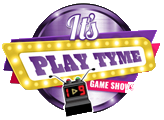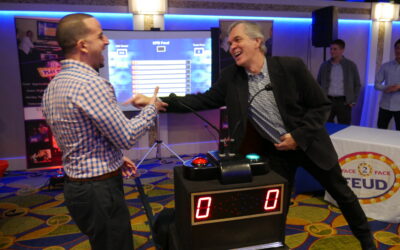When it comes to achieving success, building a strong team is essential.
I have found that effective team building strategies can unlock high performance and create a culture of excellence.
In this section, I will share key steps that are crucial for building a strong team.

Unlock Success: Key Steps in Building a Strong Team
First and foremost, it’s essential to have a clear understanding of the team’s goals and objectives. By aligning team members with a shared vision, you can foster a sense of purpose and motivation.
Additionally, creating a culture of open communication and collaboration can improve team dynamics and lead to better decision-making.
Another key step is to empower team members by delegating tasks and allowing them to take ownership of their work.
This can increase engagement and foster a sense of pride and responsibility in their roles.
Regular feedback and recognition can also boost team morale and encourage continuous improvement.
It’s important to remember that building a strong team is an ongoing process that requires continuous effort and commitment.
By implementing these key steps and prioritizing effective team building strategies, you can set your team up for success.
Key Takeaways:
- Align team members with a shared vision and clear goals
- Create a culture of open communication and collaboration
- Empower team members by delegating tasks and providing regular feedback
- Prioritize effective team building strategies
- Building a strong team is an ongoing process that requires continuous effort and commitment
1. Fostering Trust and Collaboration
Teamwork skills are essential for any successful team to function effectively. However, building trust within a team and fostering collaboration can be challenging.
As a team leader, I understand the importance of trust and collaboration in creating a high-performing team.
One effective strategy is to encourage team members to share their ideas and opinions openly.
This can help build trust and encourage collaboration by showing team members that their contributions are valued.
Another way to develop trust within a team is to lead by example. As a leader, I make sure to demonstrate transparency and accountability, which helps to build trust and fosters collaboration.
By showing team members that I am open and honest about my own strengths and weaknesses, I create an environment of openness and trust.
Creating opportunities for team-building activities can also help to build trust and collaboration within a team.
These activities can range from simple icebreaker games to more involved team challenges.
The goal is to create a shared experience that encourages teamwork skills and allows team members to bond on a more personal level.
Finally, fostering collaboration within a team requires creating a culture of inclusivity.
This means encouraging team members to work together towards a common goal, regardless of their individual roles or backgrounds.
By creating an environment of collaboration and inclusivity, teams can achieve higher levels of performance and success.
2. Developing a High-Performing Team
Successful teams don’t just happen by chance. Building a strong team requires intentional effort and a commitment to developing a high-performing mindset.
Here are some strategies that have proven effective in developing a team that consistently achieves outstanding results:
Clarify Roles and Expectations
It’s essential to define each team member’s role and responsibilities clearly.
When everyone knows what’s expected of them, they feel more accountable for their performance.
This clarity also prevents confusion and minimizes the potential for conflict.
Ensure that each person understands how their work contributes to the team’s overall goals and how their role fits into the bigger picture.
Provide Ongoing Education and Training
Even a team of skilled professionals can benefit from ongoing education and training.
Providing opportunities for team members to learn new skills, stay up-to-date with the latest industry trends, and develop their knowledge base can help maintain high levels of productivity and innovation.
Consider offering internal training sessions, external courses, and online resources to support your team’s growth.
| Training Opportunity | Cost | Duration | Benefits |
|---|---|---|---|
| Industry conference | $500-$1,500 | 2-3 days | Networking opportunities, exposure to new ideas |
| Internal training session | $0 | 1-2 hours | Customized to team’s needs, team-building opportunity |
| Online course | $50-$500 | Self-paced | Convenient, flexible, cost-effective |
Encourage Innovation and Creativity
A team that values innovation and creativity is more likely to perform at a high level. Encourage your team to speak up with new ideas and approaches to problem-solving, and create a safe space for experimentation and risk-taking.
Celebrate successes and encourage team members to learn from their failures, so they continue to grow and develop.
Provide Regular Feedback and Recognition
Regular feedback is essential for teams to operate at their best. Be specific when giving feedback, highlighting both strengths and areas for improvement.
Also, recognize your team’s achievements. Celebrating successes can be a powerful motivator, fueling team members’ desire to continue striving for excellence.

By implementing these strategies, you can develop a high-performing team that achieves outstanding results.
Remember, building a successful team takes time and effort, but the results are well worth it.
3. Effective Team Building Activities
Team building activities can play a significant role in strengthening relationships and promoting teamwork skills. Here are some effective team building exercises for teams of any size:
1. Scavenger Hunt
Create a scavenger hunt that requires your team to solve clues and complete challenges.
This activity promotes teamwork and communication as team members must work together to decipher the clues.
2. Blind Drawing
Divide your team into pairs and have one team member describe an object while the other member draws the object blindfolded.
This exercise enhances communication skills and trust within the team.
3. Trust Fall
In this classic team building activity, a team member falls backward and trusts their teammates to catch them.
This activity helps to build trust and encourages team members to rely on each other.
4. Two Truths and a Lie
This activity is a fun way to get to know your team members better.
Each person shares two true statements and one lie about themselves, and the other team members must guess which statement is the lie.

Remember, the most effective team building activities are tailored to your team’s unique needs and goals. By incorporating team building exercises into your regular routine, you can create a more cohesive and productive team.
4. Enhancing Communication and Feedback
Effective communication and feedback are essential for any successful team. By fostering collaboration in a team, you can create an environment that encourages open and honest communication.
Here are some teamwork skills that can help enhance communication and feedback:
- Active listening: Encourage team members to actively listen to one another, which includes maintaining eye contact, asking questions, and summarizing what they have heard.
- Clear and concise messaging: Encourage team members to communicate clearly and concisely to ensure that messages are properly understood. This includes avoiding jargon and using simple language whenever possible.
- Regular check-ins: Schedule regular check-ins to ensure that communication is ongoing. These check-ins can be used to share updates, ask for feedback, and identify any potential issues before they become major problems.
- Constructive feedback: Encourage team members to provide constructive feedback to one another. This can be done by focusing on specific behaviors or actions rather than making personal attacks.
By fostering collaboration in a team, team members can feel comfortable sharing their thoughts and ideas.
As a result, communication channels are improved, and feedback can be given and received more openly.

“Communication is the key to success in any team. By fostering a culture of open and honest communication, we can create an environment that encourages teamwork skills and collaboration.”
The Benefits of Effective Communication
Enhancing communication and feedback offers many benefits to a team, including:
| Benefit | Description |
|---|---|
| Better decision making | When team members communicate effectively, they are able to share their thoughts and ideas, leading to better decision making. |
| Increased productivity | Effective communication can help to reduce misunderstandings and errors, leading to increased productivity. |
| Improved trust | When team members communicate openly and honestly, they build trust with one another, leading to a stronger team. |
| Enhanced creativity | When team members feel comfortable sharing their thoughts and ideas, it can lead to enhanced creativity and innovation. |
By enhancing communication and feedback, you can create a team that is better equipped to achieve its goals.
By working together and fostering collaboration in a team, team members can develop skills that are essential for success in any field.
5. Sustaining Team Performance
As I mentioned earlier, building a strong team is an ongoing process. It requires consistent effort and a willingness to adapt to changing circumstances.
Implement Long-Term Team Building Strategies
To sustain your team’s performance, it is essential to implement long-term team building strategies.
These include setting clear team goals and objectives, providing regular training and development opportunities, and fostering a culture of open communication and feedback.
By regularly assessing your team’s performance and identifying areas for improvement, you can ensure that your team is always moving forward and adapting to changing circumstances.
Foster a Culture of Continuous Growth
Another key aspect of sustaining team performance is fostering a culture of continuous growth.
This means encouraging your team members to take risks and learn from their mistakes, as well as providing them with opportunities to develop new skills and expand their knowledge.
By promoting a growth mindset within your team, you can create a culture of innovation and creativity, which can lead to new ideas and better ways of working.

frequently asked questions
FAQ – Building a Strong Team
Q1. What are the key steps in building a strong team?
The key steps in building a strong team include clear goal setting, effective communication, fostering trust, promoting collaboration, and recognizing individual strengths.
Q2. How can I build trust within my team?
Building trust within a team can be achieved by encouraging open and honest communication, demonstrating reliability and consistency, promoting transparency, and actively listening to team members’ concerns.
Q3. What strategies can I use to foster collaboration in my team?
To foster collaboration in your team, you can encourage teamwork skills through team-building activities, create a supportive and inclusive work environment, provide opportunities for cross-functional collaboration, and promote a culture of sharing ideas and knowledge.
Q4. How can I develop a high-performing team?
Developing a high-performing team involves setting clear expectations and goals, providing ongoing training and development opportunities, fostering a culture of accountability, recognizing and rewarding achievements, and empowering team members to take ownership of their work.
Q5. What are some effective team building activities?
Effective team building activities can include icebreaker games, problem-solving challenges, team-building exercises, group discussions, and collaborative projects that encourage communication, trust-building, and collective problem-solving.
Q6. How can I enhance communication within my team?
To enhance communication within your team, establish regular communication channels, encourage open dialogue, provide feedback and constructive criticism, use technology tools for efficient communication, and promote active listening skills among team members.
Q7. What can I do to sustain team performance in the long term?
To sustain team performance in the long term, focus on continuous improvement, provide ongoing training and development.
Also, encourage learning opportunities, recognize and reward achievements, promote work-life balance, and foster a positive team culture that values growth and innovation.
Got Team Building Games ?
![]()
Book a live game show experience today!
Contact us for further details.
For Immediate assistance by text – 917-670-4689
No deposit required.
We plan and facilitate all activities.





